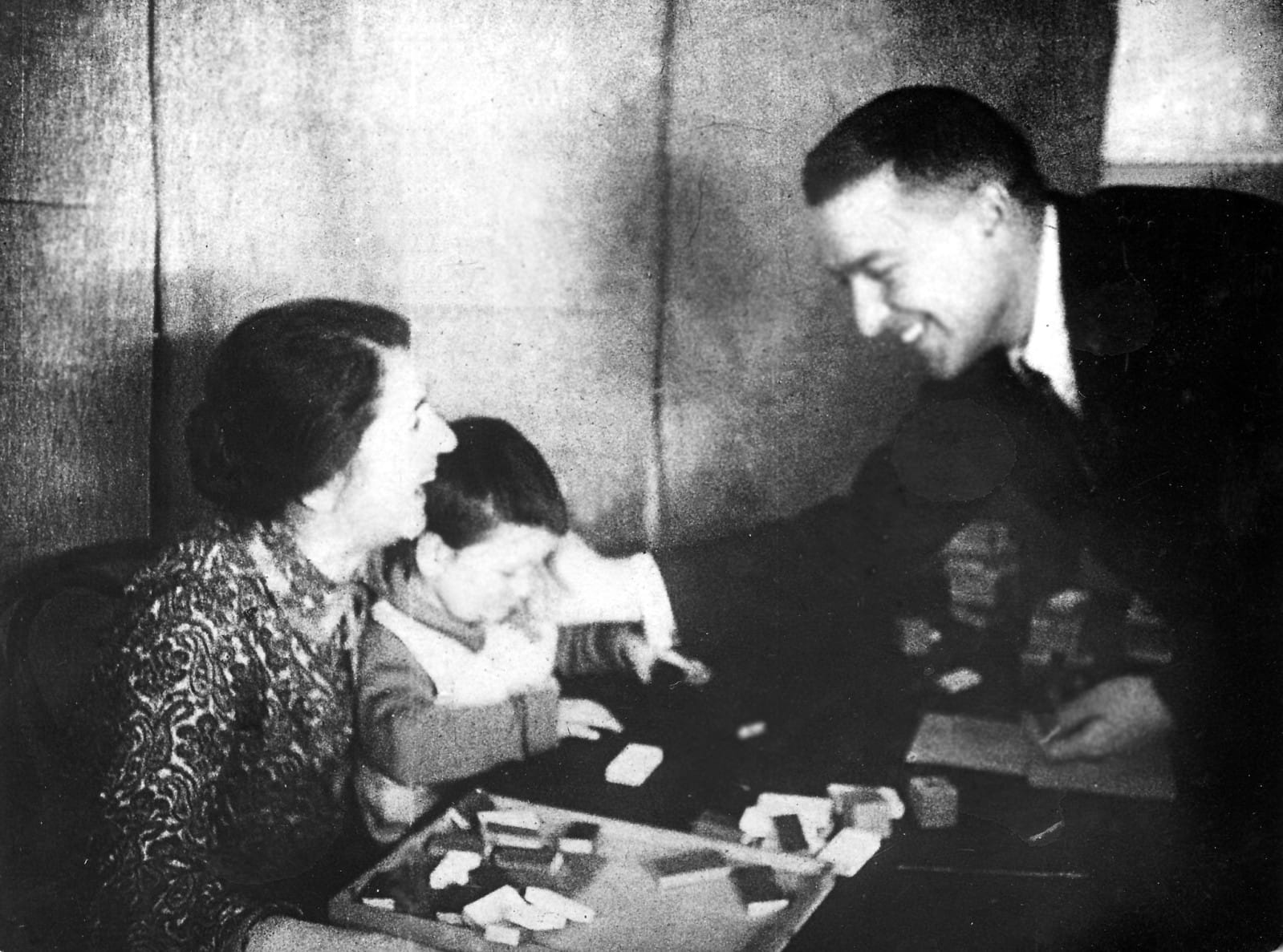Prepare to delve into the influential ideas of Lev Vygotsky, a pioneering psychologist whose theories revolutionized our understanding of childhood learning and development. This exploration will navigate his groundbreaking sociocultural theory, emphasizing the profound impact of social interactions and cultural influences on cognitive development. We’ll also unpack the concept of the Zone of Proximal Development (ZPD), a revolutionary framework for understanding how children thrive with the right scaffolding. Get ready to uncover the profound and lasting impact Vygotsky’s work has had on education and beyond.
Who Was Lev Vygotsky?
Lev Semenovich Vygotsky, a prominent figure in psychology, transformed our understanding of how children learn and develop. Unlike those who believed development unfolds naturally, Vygotsky posited that learning is a social process, deeply intertwined with the people and the world around us. His sociocultural theory suggests that social experiences, such as conversations with parents, playtime with peers, and instruction from teachers, are the driving forces behind cognitive development.
Vygotsky believed learning is most effective within collaborative environments, particularly when interacting with individuals who possess a greater understanding or skill set. To illustrate, consider a child learning to ride a bike. It’s unlikely they’ll master this skill in isolation. However, with a parent providing guidance, balance, and eventually releasing control, the child gradually progresses. This exemplifies the power of social interaction in the learning process.
Unpacking Vygotsky’s Zone of Proximal Development
One of Vygotsky’s most influential concepts is the Zone of Proximal Development (ZPD). Imagine playing a challenging board game. Alone, you might struggle to strategize effectively. However, with a more experienced player offering hints and insights, your chances of success significantly increase. This illustrates your ZPD—the optimal zone where, with guidance, you can achieve beyond your current independent capabilities.
Vygotsky termed this guided support as scaffolding. Much like temporary supports used in constructing a bridge, scaffolding represents the temporary assistance that empowers learners to bridge the gap between their current abilities and what they can accomplish with guidance. As the learner gains proficiency and confidence, the scaffolding is gradually withdrawn, mirroring the removal of temporary supports once a bridge is independently stable.
The Profound Impact of Language on Development
Ever observed children engaging in self-directed talk during play or problem-solving? Vygotsky believed this wasn’t merely “babble,” but rather a crucial component of development. He posited that language serves not only as a communication tool but also as a powerful instrument shaping our thoughts. This “self-talk” gradually transitions into internalized, silent inner speech—the internal dialogue that aids in problem-solving, planning, and making sense of the world.
Vygotsky’s Enduring Legacy in Education
While developed decades ago, Vygotsky’s ideas remain remarkably relevant in contemporary education. His sociocultural theory has transformed teaching approaches, emphasizing the creation of interactive learning environments that foster collaboration, value peer learning, and provide tailored support within each student’s ZPD. His work serves as a powerful reminder that the learning journey is best traveled collaboratively.
Vygotsky’s Four Key Principles of Development
To further understand Vygotsky’s impact, let’s examine the four cornerstones of his theory:
1. Learning as a Social Endeavor: Vygotsky asserted that learning thrives in social contexts. He believed that interactions with others, especially those with greater knowledge, are fundamental to cognitive development. We are constantly gleaning knowledge from parents, teachers, peers, and even individuals encountered online who might possess expertise in areas that pique our interest.
2. The “More Knowledgeable Other” (MKO): Vygotsky coined this term to describe anyone possessing superior knowledge or skills in a specific domain. This could be a teacher, parent, peer, online expert, or even educational technology. The defining characteristic of an MKO is their ability to provide guidance and support, helping us overcome learning challenges we might not conquer independently.
3. The “Zone of Proximal Development” (ZPD) – Where Learning Flourishes: Imagine a target with three concentric circles. The innermost circle represents what you can already accomplish independently. The outermost circle signifies tasks beyond your current reach, even with assistance. The middle ring, the ZPD, is where learning potential peaks. Within this zone, with guidance from an MKO, individuals can push their boundaries, master new skills, and expand their knowledge base. It’s akin to having a coach or mentor guiding you toward skill enhancement.
4. Language: More Than Mere Words: Vygotsky perceived language not merely as a communication medium but as a powerful cognitive tool that shapes our very thoughts. Consider how often you engage in internal dialogue to solve problems or navigate challenges. Vygotsky proposed that this “inner speech” evolves from early language experiences and social interactions, ultimately becoming a driving force behind our cognitive growth.
Vygotsky’s Enduring Contribution:
Vygotsky’s theory underscores that learning is not a solitary pursuit but rather a process deeply woven into our social interactions, cultural experiences, and language use. By embracing the support of others, identifying and nurturing our ZPDs, and acknowledging the cognitive power of language, we unlock our learning potential and foster lifelong growth.
Additional Insights into Vygotsky’s Theories
- Cultural Tools and Artifacts: Vygotsky emphasized the role of cultural tools, such as language, symbols, and physical objects, in shaping cognitive development. He argued that these tools mediate our interactions with the world and influence how we think and learn.
- Internalization of Social Processes: Vygotsky believed that higher mental functions, such as problem-solving and abstract reasoning, originate in social interactions. Through interactions with others, children internalize cultural tools and ways of thinking, gradually developing more sophisticated cognitive abilities.
- Play and Development: Vygotsky considered play a crucial context for cognitive development. During play, children often operate within their ZPD, experimenting with new roles, negotiating rules, and using language in creative ways. He argued that play provides a safe and supportive environment for children to stretch their cognitive abilities.
Vygotsky’s Legacy Today
Vygotsky’s theories continue to exert a profound influence on various fields, including:
- Education: Teachers apply Vygotsky’s principles by incorporating collaborative learning activities, differentiating instruction to meet students’ ZPDs, and using scaffolding techniques to support student learning.
- Psychology: Vygotsky’s sociocultural perspective has shaped research on cognitive development, language acquisition, and social cognition.
- Child Development: Vygotsky’s theories provide insights into how children’s social and cultural environments influence their development, informing parenting practices and early childhood education programs.
Vygotsky in a Digital World
In today’s digitally driven world, Vygotsky’s ideas are more relevant than ever. Online platforms and digital tools can serve as valuable resources for connecting learners with MKOs, providing access to vast information, and facilitating collaborative learning opportunities. However, it’s crucial to consider how technology might influence the dynamics of social interaction and the development of higher-order thinking skills.
Further Exploration of Vygotsky’s Work
To gain a deeper understanding of Vygotsky’s contributions, consider exploring resources like:
- “Thought and Language” (1934): Explores the intricate relationship between language and cognitive development, introducing the concept of inner speech.
- “Mind in Society” (1978): A collection of Vygotsky’s essays published posthumously, offering valuable insights into the ZPD, scaffolding, and the social foundations of learning.
While Vygotsky’s life and career were tragically cut short, his legacy continues to inspire researchers, educators, and anyone passionate about unlocking human potential. By understanding and applying his theories, we can create more effective learning environments that empower individuals to reach their full cognitive capabilities.
Remember:
- Research in cognitive development is ongoing. While Vygotsky’s ideas provide valuable insights, they, like any theory, undergo continuous exploration and refinement in light of new discoveries.
- This article is intended for informational purposes and should not be considered a substitute for professional advice. If you have specific questions or concerns about child development or educational practices, consult with a qualified professional.
Internal links as requested:
Delve into the intricacies of the Maginot Line, a formidable defensive system that played a crucial role in World War II. Explore the diverse filmography of Ricardo Montalbán, an iconic actor who graced both the silver screen and television with his unforgettable performances.
- SYBAU See You Baby Meaning: Gen Z Slang Evolves - July 1, 2025
- Unlock Your Inner Youth: Lifestyle Secrets for a Vibrant Life - July 1, 2025
- Decode SYBAU Meaning: Gen Z Slang Explained - July 1, 2025






